Solid Surface vs Quartz Countertops
Here’s our comparison of solid surface vs quartz countertops with differences, pros and cons and cost. 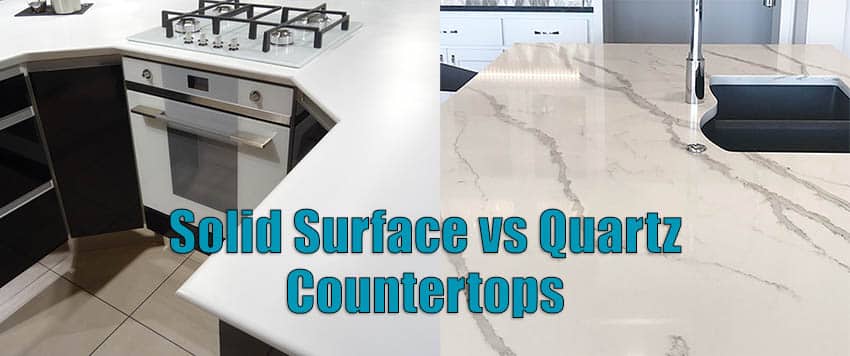 Solid surface and quartz countertops can both create a beautiful kitchen design. Each has its own unique advantages and disadvantages that make them each a better choice depending on your wants and needs.
Solid surface and quartz countertops can both create a beautiful kitchen design. Each has its own unique advantages and disadvantages that make them each a better choice depending on your wants and needs.
Differences Between Solid Surface vs Quartz Countertops
There are a great deal of differences from quartz when it comes to solid surface countertops, despite the similarities in appearance and low maintenance.
One of the main differences is how each of the products are made. While both being man made alternatives to the natural stone, the construction is vastly different.
Quartz countertops are typically made of about 93% quartz, which is an extremely durable material. The quartz is then mixed with various polymer resins and pigments to give the final color and pattern.
Solid surface is made of either acrylic or polyester based plastic. This material is molded into the desired shape of the countertop.
Another main concern when it come to the difference in the solid surface and quartz countertops is how well they perform in the kitchen or bathroom setting.
Quartz is a non porous material making it pretty resistant to water and bacteria. Quartz countertops are also on the strong side; they do not commonly chip, scratch or crack.
On the contrary, solid surface is less durable, but still resistant to most scratching and staining, and if they do occur, they can be easily removed. Unfortunately solid surface is susceptible to damage by heat and care should be taken to not place extremely hot items on the surface.
While solid surface and quartz have a similar look, there are some key differences that set them apart in the appearance department.
Quartz can come in patterns that mimic natural stones such as marble or granite, and acts a bit more like them in the weight and thickness departments.
Quartz countertops will have a seam if there needs to be more than one piece installed. The solid surface countertops can come in a wider variety of colors and patterns than quartz, and can be a lot thinner than the quartz countertops.
Solid surface countertops do not have any visible seams which gives a clean complete look.
Solid Surface vs Quartz Countertops Pros & Cons
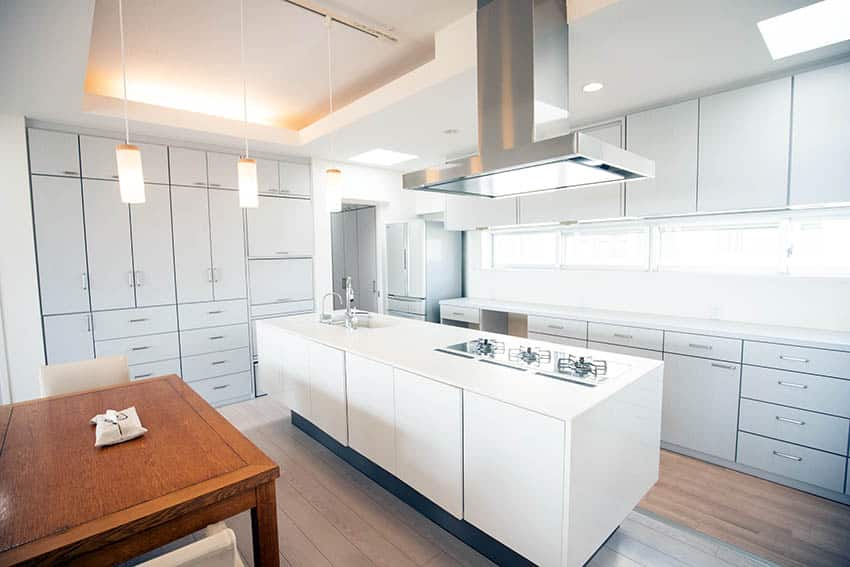
Solid Surface Pros
Nonporous: Solid surface has a great resistance to water, staining, and bacteria, leaving an extremely sanitary surface. Solid surface is a good material for bathroom and kitchen counters due to this non porous quality.
Durability: The materials used to create solid surface go all the way through the countertop. This leads to a long life because any changes that may be made, or wearing over time cannot be seen because the material looks the same all the way through and it looks natural.
Maintenance: Solid surface is one of the easiest materials to repair when if it gets minor scratches or stains. The solid surface countertop just needs to be buffed out and the scratches or stains will come out.
Solid Surface Cons
Susceptible to damage: Overall, solid surface is a weak and soft surface, which means that it can collect scratches and scrapes if you are not careful or have it for an extended period of time.
Be sure to use cutting boards and other protections to avoid damages. If you do get a damaged surface, it is a relatively easy fix.
Not heat resistant: Solid surface countertops are susceptible to heat damage, they can melt when hot items are placed on them.
When placing things on a solid surface it is important to make sure they are not extremely hot, and if they are using a potholder or protective surface is recommended. Extreme heat can deform a solid surface countertop, and that is not something that can be repaired.
Quartz Countertops Pros
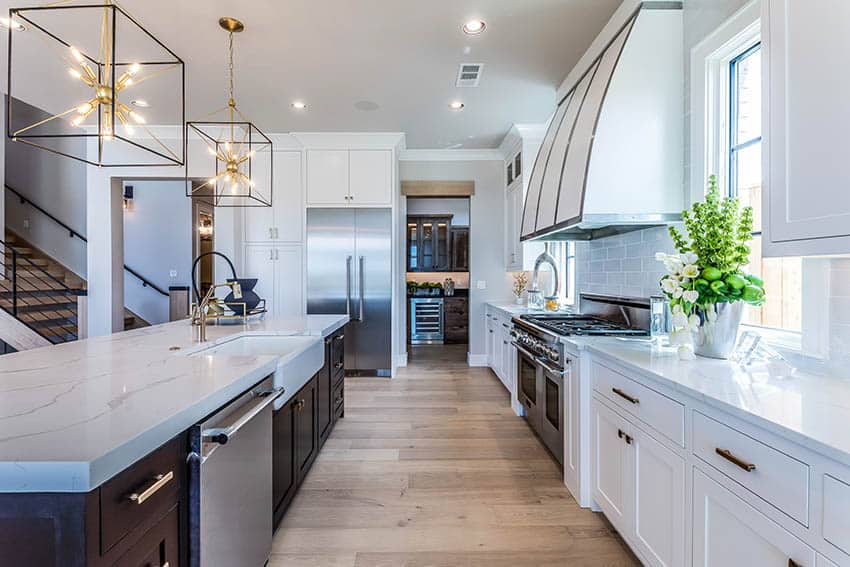
Durability: Quartz is an extremely tough product, with great resistance to damage from staining, chipping and scratching. The hardness of the material is a 7/10 which compares to a granite of 6/10.
Maintenance: Quartz is a low maintenance product that is both non porous and homogeneous. These qualities eliminate the need to seal the surface since they are already sanitary and do not collect dirt or bacteria. Additionally, with the scratch resistance qualities there is slim to no need for repairs to the countertops.
Quartz Countertops Cons
Visible Seams: Seams in a countertop not only create a minor eye sore, they also create a weak point. Most vendors offer color matching epoxy that can fit in the seams to create a good looking appearance, but the seams are still present.
It is best to keep them as clean as possible for the best look. Being the weak point, having a little extra caution at the seams is recommended.
Non heat resistant: Like solid surface quartz countertops are susceptible to heat and sun damage. Extreme heat can burn the resins in the countertop in they are not protected. Additionally the pigments in the quartz countertops could fade if they are constantly exposed to direct sunlight.
Solid Surface vs Quartz Countertops Cost
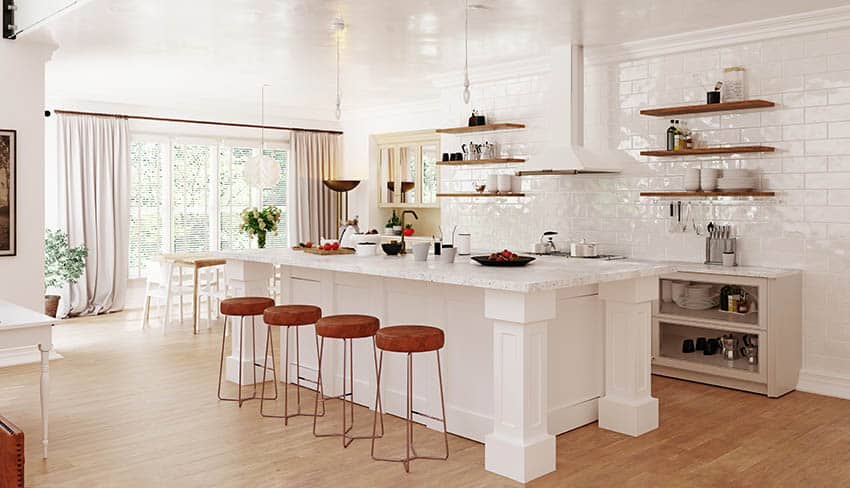
The location of purchase and any other kinds of customization that may be part of the design can affect the overall price of the solid surface.
Another contributing factor is the size of the countertop the more material needed, the higher the price, and the higher the installation cost. Overall solid surface is a middle of the road price range, while still giving a good appearance.
Quartz countertops cost about $50 to $200 per square foot installed, similar to that of the above mentioned solid surface. A with all materials, there are some additional factors that can raise or lower the price tag.
The biggest factor is going to be the quality of quartz that you get; low would be about $50 to $60, medium would be $60 to $80 per square feet, and high could range from $80 to $200+ per square foot. Install costs can also change based on size, shape and difficulty of design.
For more related content visit our page on quartz vs granite countertops.

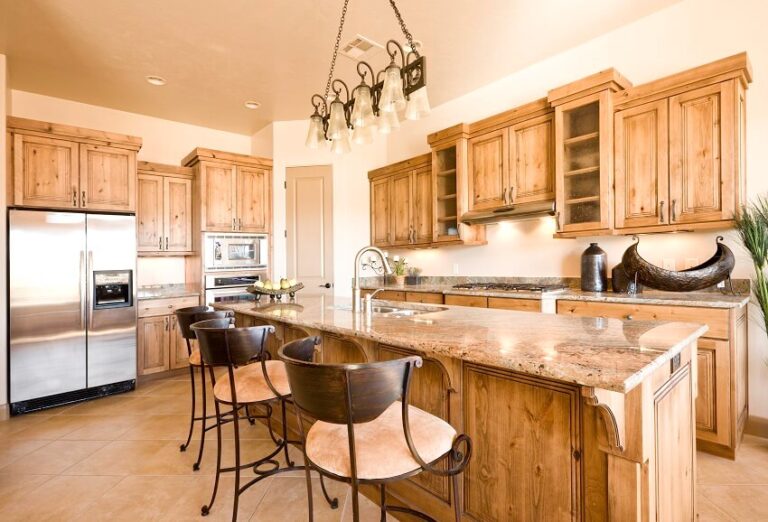
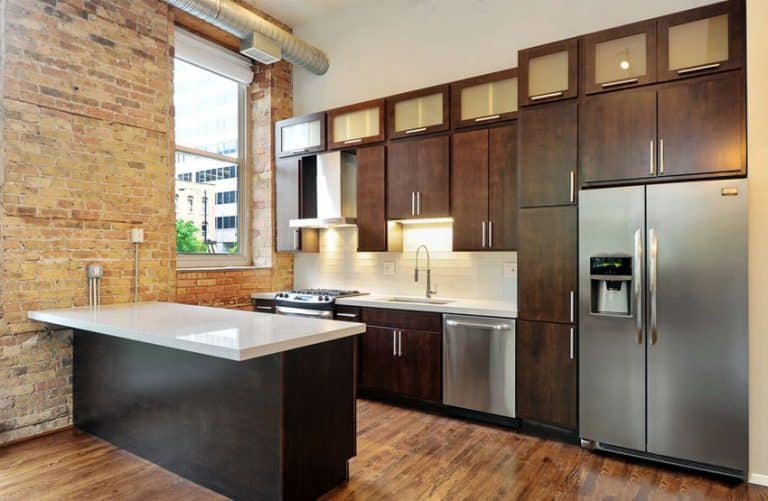
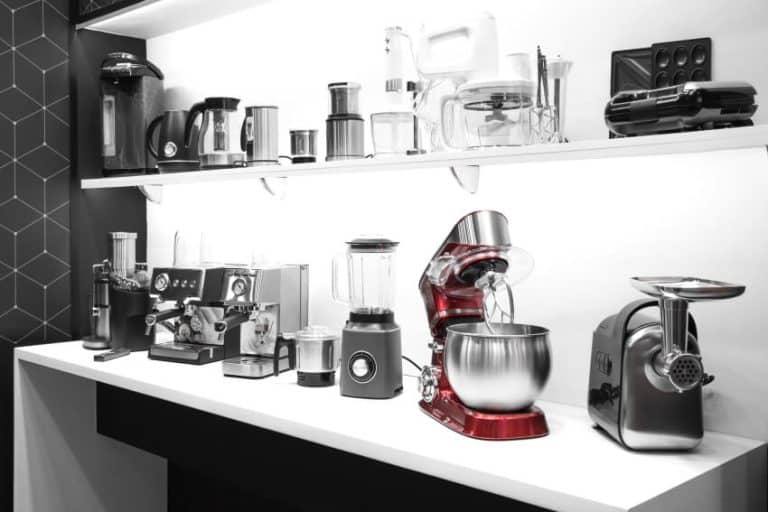
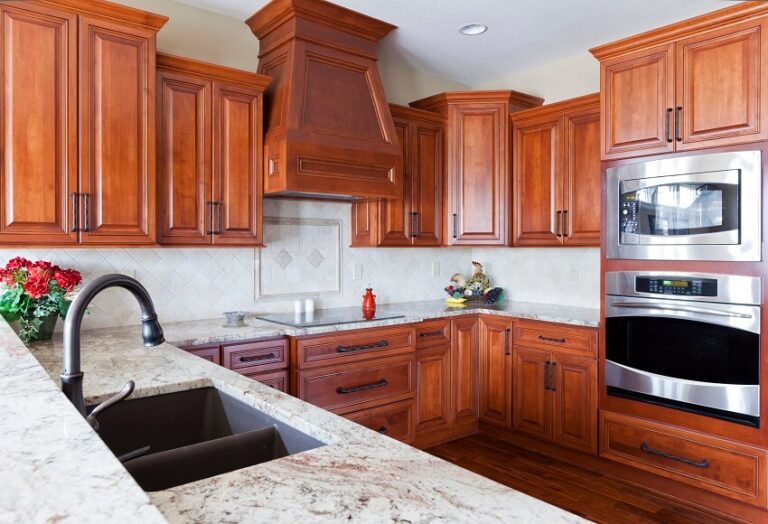
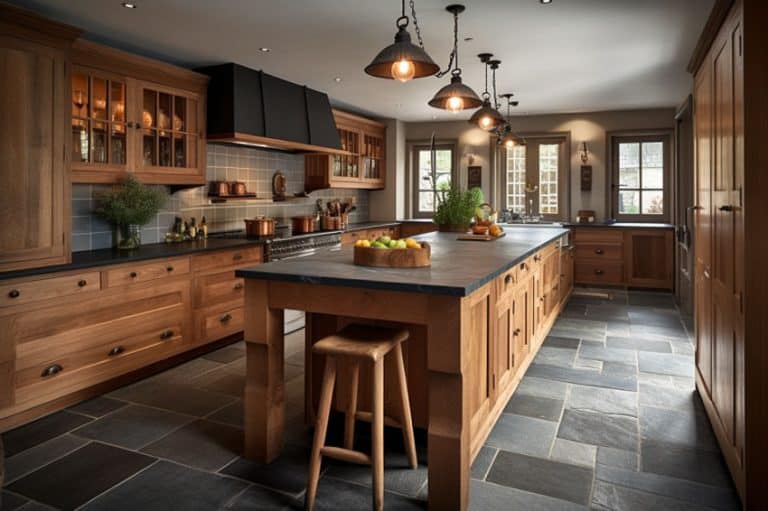
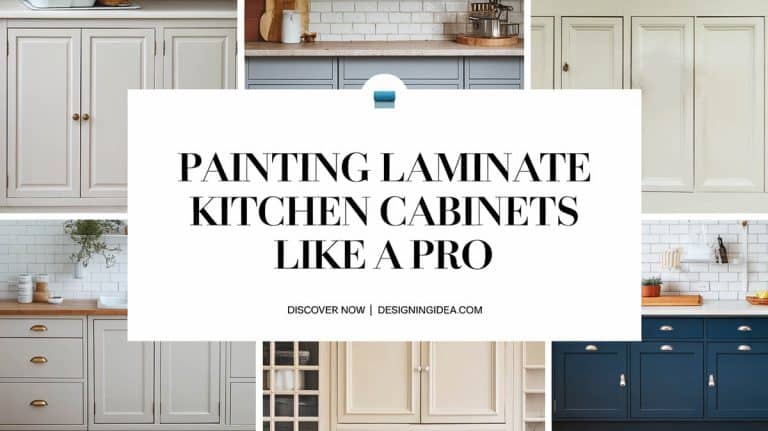
You caught my attention when you stated that quartz countertops are extremely non-porous. This could make both our kitchen and our large master bathroom a lot easier to clean since water stains and spills are the usual cause of mess in those rooms. I’ll start looking for any contractors that offer quartz countertops right away and have them installed into those rooms.